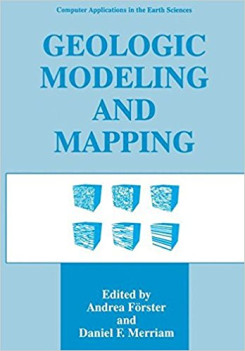Geologic Modeling and Mapping
This volume is a compendium of papers on the subject, as noted in the book title, of modeling and mapping. They were presented at the 25th Anniversary meeting of the International Association for Mathematical Geology (IAMG) at Praha (Prague), Czech Republic in October of 1993. The Association, founded at the International Geological Congress (IGC) in Prague in 1968, returned to its origins for its Silver Anniversary celebration. All in all 146 papers by 276 authors were offered for the 165 attendees at the 3-day meeting convened in the Hotel Krystal. It was a time for remembrance and for future prognostication. The selected papers in Geologic Modeling and Mapping comprise a broad range of powerful techniques used nowadays in the earth sciences. Modeling stands for reconstruction of geological features, such as subsurface structure, in space and time, as well as for simulation of geological processes both providing scenarios of geologic events and how these events might have occurred. Mapping stands for spatial analysis of data, a topic that always has been an extremely important part of the earth sciences. Because both modeling and mapping are used widely in conjunction, the book title should reflect the close relation of the subjects rather than a division. Here, we bring together a collection of papers that hopefully contribute to the growing amount of knowledge on these techniques.
- Genre: All Books, Geomodeling
Cast & Characters
| 1-25 | Sedimentary Process Simulation: A New Approach for Describing Petrophysical Properties in Three Dimensions for Subsurface Flow Simulations |
| 27-41 | Modeling of Multicomponent Diagenetic Systems |
| 43-77 | Modeling Petroleum Reservoirs in Pennsylvanian Strata of the MidContinent, USA |
| 79-93 | Thermal Modeling at an Ancient Orogenetic Front with Special Regard to the Uncertainty of Heat-Flow Predictions |
| 95-112 | Effective Transport Properties of Artificial Rocks — Means, Power Laws, and Percolation |
| 113-133 | Three-Dimensional Modeling of Geological Features with Examples from the Cenozoic Lower Rhine Basin |
| 135-152 | Volumetrics and Rendering of Geologic Bodies by Three-Dimensional Geometric Reconstruction from Cross Sections or Contour Lines |
| 153-173 | The Effect of Seasonal Factors on Geological Interpretation of MSS Data |
| 175-197 | Reconstruction of the Leduc and Wabamun Rock Salts, Youngstown Area, Alberta |
| 199-214 | Use of the Computer for the Structural Analysis of the Ordovician Sedimentary Basin in Estonia |
| 215-228 | Pairwise Comparison of Spatial Map Data |
| 229-261 | Applications of Spatial Factor Analysis to Multivariate Geochemical Data |
| 263-279 | Geostatistical Solution for the Classification Problem with an Application to Oil Prospecting |
| 281-299 | Transition Probability Approach to Statistical Analysis of Spatial Qualitative Variables in Geology |
| 301-322 | An Intelligent Framework for Geologic Modeling Applications |

